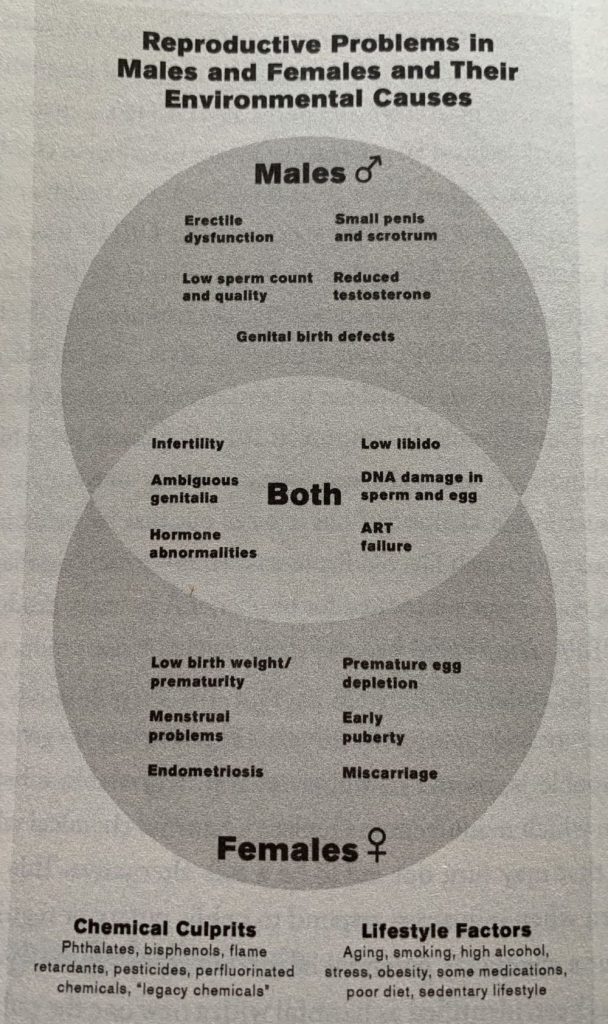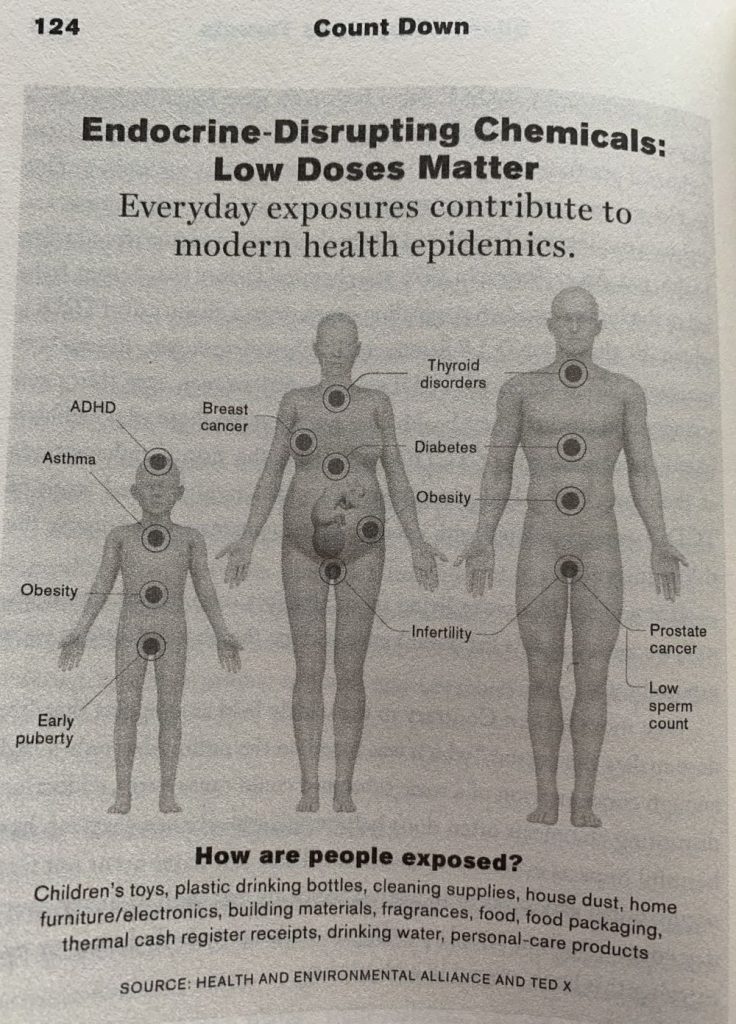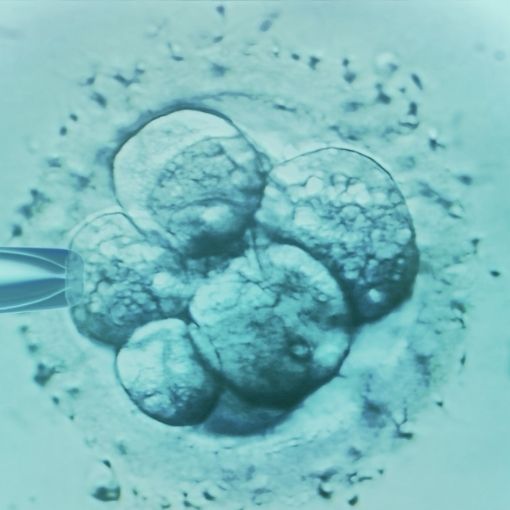Previously I hadn’t thought much about male fertility in terms of what affects it, how it can impact it, and baby-making. When I first read about how in my lifetime half of the men in the Western world will be infertile, it seemed unbelievable. So I delved into it more…
“By 2045 half of the men in the western world will be infertile“
Prof. Shanna Swan

This lead me to Prof. Shanna Swan and her book called Countdown. It’s about how the modern world is affecting sperm count and basically impacting both male fertility and female fertility. I’ve tried in this post to sum up a few things on male fertility to help you understand how what we do every day impacts our fertility. To be honest, it is scary.
There are many lifestyle habits that affect male fertility in terms of sperm. When I say sperm it can be their mobility (as in how good they are at swimming), the quality, and the quantity.
In terms of female fertility, we also know that
“in some parts of the world, the average 20-something woman today is less fertile than their grandmothers would have been at 35 years old”
Countdown by Shanna H Swan, Phd
The reproductive problems that Prof. Swan discusses in her book are summed up in this image. In men, it is not just about low sperm count and the quality of the sperm. But as you can see also erectile dysfunction (not being able to get it up), reduced testosterone, low libido, DNA damage to the sperm, and more.
For women, the same factors can cause menstrual problems, Endo, early puberty, miscarriage, infertility, low libido, premature egg depletion, and more.
Some of the lifestyle factors that impact us are ones that you probably already know about. But there might be a few eye-openers on the list…

8 Things That Can Affect Male Fertility
- Body Weight
Obesity (i.e. a BMI of over 30) or being underweight is associated with lower sperm count, sperm concentration, decreased mobility, and a higher incidence of abnormally shaped sperm. If your man is underweight, then all of these also apply. - Stress
As with anything in life, stress impacts our bodies resulting in things not necessarily performing at the optimum level. This is why as a woman, you often get the not-so-helpful “just relax and it will happen”. - Exercise
Exercise is great and definitely encouraged regular exercise is beneficial for reproductive function as well cardiovascular and brain health. Research shows that 46% of adults are not exercising regularly. However, when it comes to cycling, it has been shown that men who cycled for more than 90 minutes a week had 34% lower sperm concentration than those who didn’t cycle at all. But the good thing to note is that once you stop cycling, sperm concentration does improve. - Food
Eating habits affect fertility in both men and women. Apart from the usual suspects of processed food and sugar, there are certain processed meat like hot dogs, bacon, sausage, salami and bologna that affect your body. The curing of these meats produces chemicals, including nitrates and nitrites, that can cause cancer and damage DNA in sperm. Interestingly, research also found that pregnant women who ate seven or more beef meals a week had sons with reduced sperm counts. - Drugs
Interestingly, when I say drugs you probably thought of drugs like speed, and cannabis. And yes, those do make an impact. But also, it has been found that high doses of paracetamol can alter the shape of sperm in ways that can compromise their fertilising capabilities. - Smoking
It is not just about not smoking yourself, but also not having exposure to second-hand smoke. If you are exposed to smoke and give up, and the sperm will rejuvenate itself in 60-70 days. - Age
You have probably heard of the term geriatric mother, in relation to a woman over the age of 35 who is pregnant. Because female fertility drops off from the age of 35. But research also shows that male fertility starts to drop off after 35 years old. In the past, it was always assumed (I hate to say it, but by men) that any fertility issues were due to the woman’s fault, but that is not the case. Funnily enough, both sexes affect whether the egg is fertilised successfully! - Chemicals

You have probably heard about BPA, a chemical that was used in plastics from the 1950s. It is mostly known for plastics used for reusable water bottles, baby bottles, food containers, and on receipts, you get at the store checkout. The chemical, when it gets into the human body, acts as synthetic estrogen. The female reproductive hormone basically disrupts the body’s hormone levels causing issues, such as those shown in this image.
“BPA, is now recognised as an Endocrine Disrupting Chemical (EDC), meaning it can interfere with the normal hormone function of people and wildlife[i]. Following its widespread use across the globe, BPA has been detected in the blood and urine of almost every person tested.”
Fidra
According to Fidra, in 2020, BPA was banned from receipts across the UK and EU. It is due to the health risks posed to the unborn children of cashiers who handle receipts regularly. Scary, isn’t it? This is only one of the chemicals that can cause hormone imbalances. Others are pesticides, cleaning products, fertiliser, antibiotics given to animals, and more 🙁
I should say here that I am just summarising what I read in Countdown, and I am not a doctor. But many of these points are also discussed in books such as It Starts with the Egg. If you are worried about your or your partner’s fertility cleaning up your environment and lifestyle not only helps with your fertility but also with living longer, so really, it is a win-win 🙂
I’d love to hear any thoughts or examples of a change you or your partner have made that has made a difference to your fertility, pop a comment below….




